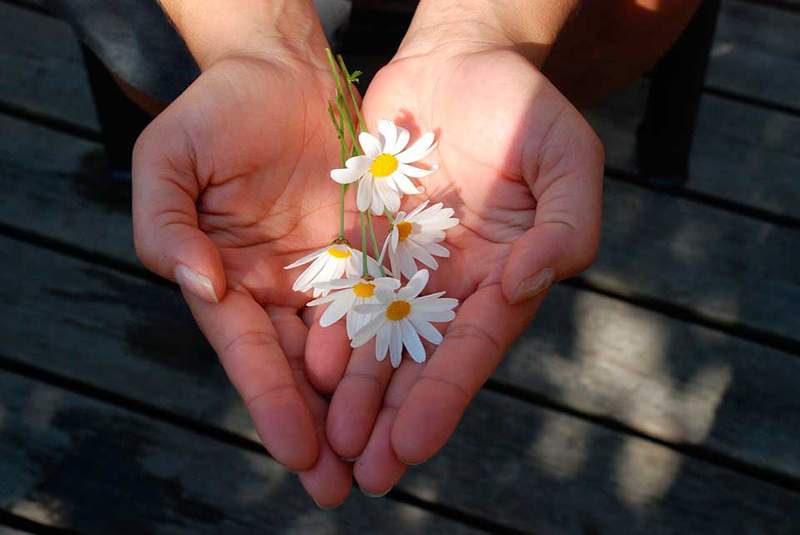Gratitude a strength without limits

- 1544
- 500
- Jeffery Jones
"Arigato", "Obrigado", "Thank you", "Thank You" or "Danke", No matter the language, the content matters, what is hidden behind these words, language is just a tool that helps us express and behind a "thank you" there should be a feeling, an emotion that from psychology we classify as positive.
The study of gratitude within psychology did not begin until approximately 2000, possibly because The study of human behavior has always been focused on the pathology and weakness of the human being, In the understanding of unpleasant feelings instead of understanding positive emotions in depth.
Thank you to recognize, it allows you to get away from frustrations, It is a cognitive change that allows the concern to the action of positive existence, is to be aware, is full attention (mindfulness), Being grateful implies responding to life with positivity and well -being.
Adam Smith (1976) said Gratitude is the emotion that moves the human being to reward another, It makes us give the other what we have received, feeling gratitude leads us to perform acts in favor of humanity. Lazarus and Lazarus (1994) conceived gratitude as an "empathic emotion" that reflects what is felt when something is received without having to give anything in return.
Gratitude = affective features + mood + psychological elements that favor fullness.
Thanks is one of the most important feelings derived from the ability to love, it arises in childhood with other emotions, so that a child is grateful, must accept himself and know and recognize in him the positive aspects and then recognize it in others.
"Only an excess is recommended in the world: the excess of gratitude" -Jean de la Bruyère
5 benefits of gratitude
Gratitude has many benefits at the physical, mental and emotional level:
- Physical pain decreases and improves our immune system: Exercises as simple as every night before bed.
- The acts of thanks, be aware that you have health and you are alive, Reaching your goals, receiving an education, or thanking someone for a favor will release large amounts of dopamine, the liberation of this neurotransmitter is related to attention, memory, sleep, learning and humor.
- Reduces stress.
- Reduces depression: Libera serotonin, the "happiness hormone". In a study by Robert A. Emmons at the University of California in Davis and his colleague Mike McCullough at the University of Miami, the participants, randomly assigned, were given three different tasks. Everyone carried a weekly newspaper: a group described the things they felt thanks, another explained everything that annoyed them and the last one monitored neutral events. After ten weeks, participants in the gratitude group felt 25 percent better than the other groups, reported less health problems and paid an average of 1.5 hours more. In a later job of Emmons with a similar configuration, participants who completed gratitude exercises every day offered other people more emotional support in their lives than those of other groups.
- Improve your self -esteem: People who are grateful have better self -esteem. In part, due to their ability to appreciate other people's achievements.
"Gratitude is not only the greatest of virtues, but the mother of all others."-Cicerón

How to educate in gratitude?
- Set out: As parents are the first to cultivate this emotion/virtue, since children learn by imitation.
- Teach him really thanks, Not only for education or courtesy.
- Help him to thank beyond the material, GIVE THANKS NOT ONLY FOR WHAT NOT SAN BUT FOR THE APRID "SUBJECT A DOOR", "LET" ... etc.
- Gratitude is always accompanied by admiration: Teach him to create astonishment for everyday things such as having hot water, a bed or a family.
- Look for him for a moment a day to thank, During dinner or before sleeping.
- Help him write a letter of thanks Who has done something for him, we still live in a society in which to thank.
- Educa in the initiative, do things for others without asking.
- Focus the positive, make him aware of the positive emotions that he generates thanks.
Giacomo Bono, Professor of Psychology at the University of California and author to educate in gratitude (word 2016) emphasizes that “this virtue also encourages the ability to face problems and resilience; And if we help children develop character and gratitude, we will make them much stronger and more autonomous ”.
 Gratitude Psychology
Gratitude Psychology 3 gratitude exercises
- Louise there, wrote in his Gratitude book "Give thanks for what you have will transform your life". “Be aware of what it causes to be grateful and put it into practice every day, start when you want, it is not a competition, you must feel what you are doing, it is important to believe in that thanks; So start thanking what really resonates in you and little by little you will move forward, until you realize how much you are to thank. An example: thanks, for the internet, that allows me to have access to this information "
- The gratitude inventory: It consists of making a list of at least 10 important things for you and thanking them for them. Classifications can be made depending on whether what you appreciate is something you own, someone important in your life or events you have lived.
- Turn gratitude into a comforting habit: Practice gratitude at the same time every day to turn it into a habit. Whether you write in the morning after getting up or at night before bedtime. Having a schedule will help you make it easier to keep this new habit. Try to choose an hour of the day that works better for you, that serves you to meditate and quickly thank for the positive moments you have enjoyed that day. After writing, close your eyes and visualize what you have written, while experiencing a deep feeling of gratitude.

